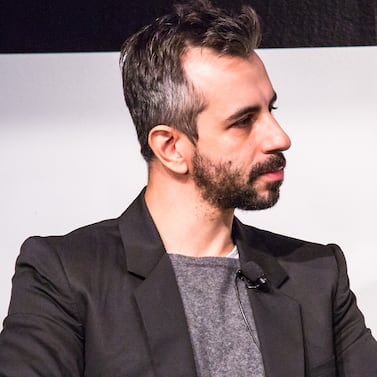
Agenda-setting intelligence, analysis and advice for the global fashion community.

Agenda-setting intelligence, analysis and advice for the global fashion community.

Raspberry AI, a design platform that adapts AI’s image-generating capabilities to the needs of fashion creatives, on Monday announced $24 million in fresh funding from a number of prominent backers.
Leading the new round was Silicon Valley venture firm Andreessen Horowitz, while others participating included previous investors Greycroft, MVP Ventures and Correlation Ventures.
The company last year raised $4.5 million from other big names, such as Khosla Ventures — an early investor in OpenAI — as well as Revolve co-founder Michael Mente and Reformation founder Yael Aflalo.
Raspberry will use the new funds to accelerate development of its platform and expand its team with more engineering and machine-learning talent, as well as hire more staff in sales, customer success and marketing, according to Cheryl Liu, founder and chief executive.
ADVERTISEMENT
Raspberry is among a group of start-ups building generative-AI design platforms for fashion. Among its capabilities, it can produce new designs from text prompts and image references, translate hand-drawn sketches into photorealistic renderings and automatically create the technical drawings needed for manufacturing.
Liu said more than 70 brands from mass-market to luxury in fashion and footwear are already using Raspberry, often to streamline product development by making it easier to visualise garments and cut out the need for numerous physical samples. In its funding announcement, Raspberry named Under Armour, MCM Worldwide, supply-chain specialist Li & Fung and the large Italian retailer Gruppo Teddy as customers.

Liu added that many brands have proceeded past trials of its technology and inked annual contracts, particularly larger companies with mandates from their boards to improve efficiency.
“It’s really gone beyond the pilot phases and [is] being implemented deeply into their processes,” she said.
Gruppo Teddy began using Raspberry in a small test in August and has been steadily onboarding more employees since, according to Mattia Giorgi, the company’s head of AI and innovation. The platform is now in regular use by two departments. The “stylists,” who define the look and direction of a collection with assets like mood boards, primarily use the text-to-image capabilities, while the team responsible for creating the final garments mostly uses the sketch-to-render function, since the designers often start from a historical database of garment sketches they use to produce new variations.
Giorgi said they’re still working to measure the benefits but feedback from the product department indicates the company is able to design faster and employees like the tool.
“Internal word of mouth has been a strong signal to increase the adoption rate,” he said.
Next, Raspberry plans to expand to other categories where its customers have design needs, such as home goods and beauty packaging.
A new wave of start-ups is building tools that take the capabilities of the market’s top generative-AI models and tailor them to fashion’s specific needs. Among them is Raspberry, which just raised $4.5 million in funding from a number of big-name backers.
Norma Kamali is teaching an AI system to replicate her design style — “downloading my brain,” she calls it — so when the day comes that she steps back from her company, her creative legacy will carry on.
Baggu and Collina Strada are the most recent targets of ire among young consumers who say generative AI is unethical, and they won’t be the last. What does it mean for an industry that has already embraced the innovation with open arms?

Marc Bain is Technology Correspondent at The Business of Fashion. He is based in New York and drives BoF’s coverage of technology and innovation, from start-ups to Big Tech.
The Portuguese Footwear Association, APICCAPS, invited brand leaders and business professionals across footwear and its adjacent industries to a day-long Digi4Fashion event in Porto, on digital opportunities for the industry in 2025. There, BoF spoke to footwear and fashion brands to learn about their key challenges in this area, and presented on opportunities and innovation in e-commerce today.
Apple Inc. is aiming to release smart glasses at the end of next year as part of a push into AI-enhanced gadgets.
The world’s leading artificial intelligence lab has acquired the former Apple design chief’s one-year-old startup, io, in a push to create a new family of products for the next era of computing.
The search giant unveiled a new shopping experience and other features at its annual I/O developer conference as it vies with rivals to transform the way consumers find and buy products online with AI.